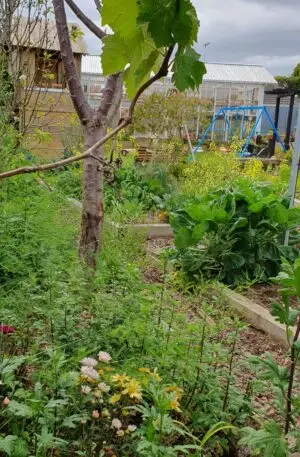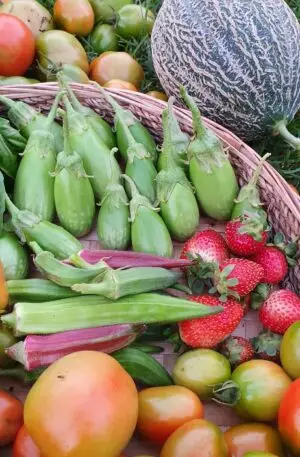The COVID-19 pandemic brought many challenges, but it also taught us invaluable lessons—one of the most significant being the importance of food security. As people spent more time at home, gardening became a new found passion for many. Seed companies and nurseries sold out almost overnight, and even the smallest patches of urban land were transformed into vibrant, productive gardens.
For many, this was their first foray into gardening. And once bitten by the gardening bug, it’s hard to go back. Those who experienced the joy of growing their own food discovered not just a practical skill but a fulfilling way of life.
Urban Edible Gardens: A Growing Trend
The constraints of urban living didn’t deter aspiring gardeners.
Instead, they inspired creativity. Little corners, balconies, and even rooftops were rediscovered as potential gardening spaces. With innovative ideas, urban gardeners began maximizing their limited spaces to grow edible plants, from herbs to vegetables.
This trend isn’t just a passing phase—it’s a movement. The rise of edible gardens in urban areas is reshaping how we think about our food, our spaces, and our connection to nature.
Why Edible Gardens Matter
Food Security: The pandemic reminded us how vital it is to have access to fresh food. Growing your own herbs, greens, or vegetables provides a level of independence and peace of mind.
Sustainability: Urban edible gardens are a step toward sustainable living. They reduce the carbon footprint of transporting food and minimize waste by encouraging people to grow only what they need.
Accessibility: You don’t need a sprawling yard to start an edible garden. Herbs and vegetables thrive in pots and containers, making gardening accessible even to apartment dwellers.
What Can You Grow?
Even if you don’t have space for a full vegetable patch, there’s
plenty you can grow in urban areas:
Herbs: Basil, mint, coriander, and parsley thrive in pots and are
perfect for small spaces.
Greens: Lettuce, spinach, and kale are easy to grow in containers.
Compact Vegetables: Cherry tomatoes, chillies, and radishes adapt well to urban gardening setups.
A Lifestyle That Lasts
The pandemic may have accelerated the rise of urban gardening, but the benefits ensure its longevity. Gardening connects us to the earth, provides fresh and nutritious food, and offers a sense of accomplishment and peace.
The journey of transforming small urban spaces into flourishing edible gardens is a testament to human adaptability and creativity. So whether you’re growing a handful of herbs on a windowsill or cultivating a rooftop vegetable patch, know that you’re part of a larger movement—one that’s reshaping cities, one garden at a time.

